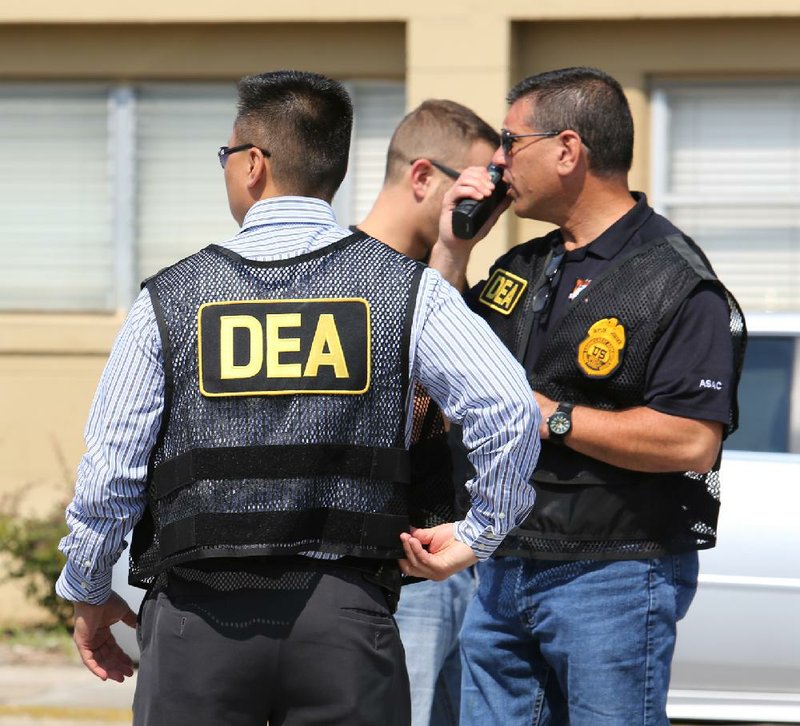A decade after her brother died of AIDS, Barbara Poma co-founded a nightclub in Orlando with her friend, Ron Legler. Like the places where John Poma first introduced her to his community's colorful life, her club would embody that energy. It would have decor to make John proud and "an atmosphere that embraced the gay lifestyle," according to its website.
RELATED ARTICLES
http://www.arkansas…">FBI says extremist homegrownhttp://www.arkansas…">Immigration splits rivals
http://www.arkansas…">Indiana man held in California case was on probation
Her club would be more than "just another gay club."
And so all those who visited would know its purpose, Barbara Poma and her business partner named the venue Pulse.
"For John's heartbeat," the website says.
It thrived in that spirit for 12 years, serving as a community hub for HIV prevention, breast-cancer awareness and immigrant rights. Until Sunday.
As the bar prepared for last call on Latin Night and the dance floors throbbed with bodies, an armed man toting an assault-style rifle and pledging allegiance to the Islamic State snuffed out the safe space that Barbara Poma had built, leaving in his wake a building bloodied by carnage unparalleled in the history of modern U.S. mass shootings.
More than 100 club patrons were killed or injured.
Across the country, advocates and pundits and newspaper editorials declared the actions of the shooter, 29-year-old Omar Mateen, an assault on the core of the lesbian, gay, bisexual and transgender movement. Others called it another act of war against the freedom Americans cherish.
It's unclear why Mateen targeted Pulse, many miles away from his home in Fort Pierce, Fla. After the attacks, the gunman's father, an Afghan immigrant, told reporters that his son had become angry months ago when he saw two men kissing in Miami.
"From the beginning, Pulse has served as a place of love and acceptance for the LGBTQ community," Poma said in a statement posted to the club's website. "I want to express my profound sadness and condolences to all who have lost loved ones. Please know that my grief and heart are with you."
Parliament House Orlando, another popular gay resort and bar in the city, responded in solidarity by posting on its business sign: "WE ARE PULSE UNBREAKABLE."
Across social media, mourners described Pulse as home, a place they felt safe. Some said it was the very first gay club they ever frequented.
In an essay for website Fusion, Daniel Leon-Davis wrote of growing up in a culture driven by hyper-masculinity. Often, he drove past Pulse, he wrote, and would turn up his nose at the people who gathered there.
"I refused to go to gay clubs because it meant that I would be one of 'those gay men,'" he wrote. "The first time I ever entered Pulse, everything changed. For the first time in my life, I saw people that looked like me living freely. I saw people in their joy. I saw people in their celebration of life."
Leon-Davis wrote that the club grew in the years that he visited, acquiring more space to accommodate the swarming crowds it attracted. Pulse is known as one of Orlando's few gay clubs, reported the Miami Herald, and among the most upscale. Its partygoers reveled in drag shows, strip competitions and dancing.
It was also a community partner in many educational and advocacy efforts, including Come Out With Pride, Equality Florida and the Zebra Coalition, an organization that works to support LGBTQ (the Q stands for questioning) youth in the face of homelessness, bullying and physical and sexual abuse.
"Pulse is like a family. Everybody who works there is treated equally. Treated like brothers and sisters," Benjamin Di'Costa, 25, a former Pulse dancer, told the Herald. "When somebody is hurting or in need, we always look out for each other."
That solidarity was echoed on social media.
In his essay, Leon-Davis wrote: "Like so many gay nightclubs, Pulse played a major role in the community. This often gets dismissed because it's just a 'nightclub.' In reality, it was a community center. It was where you went to be yourself. To get away from hate. To be free."
By Sunday, the future of Pulse remained unclear. Families and friends were still waiting for a complete list of those who died inside the club. The crime scene was still active.
But among the Pulse community, there was hope that its doors would once again welcome allies and members of the LGBTQ community.
"Together we will rebuild," Leon-Davis wrote, "but today, we lay here in pain."
A Section on 06/14/2016
